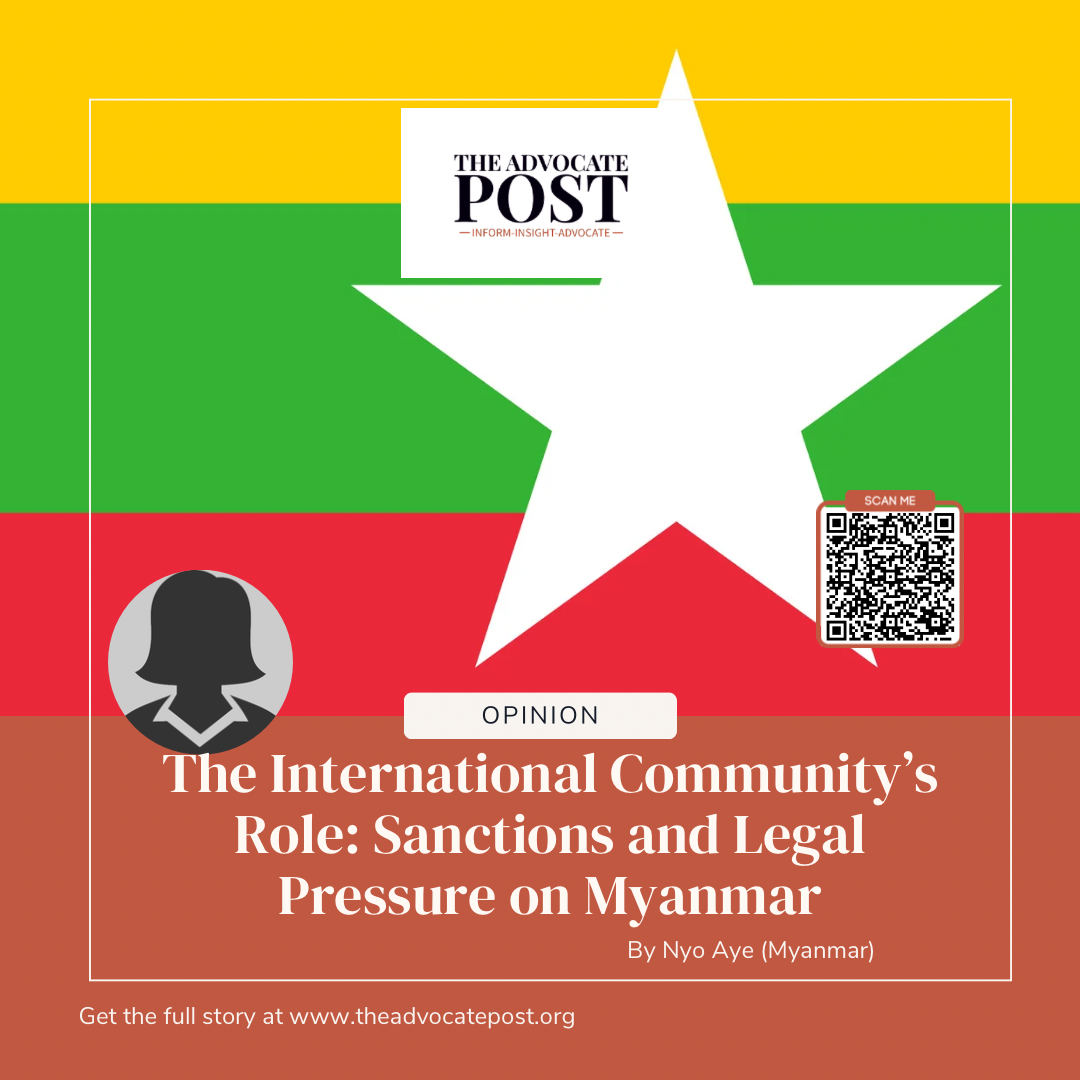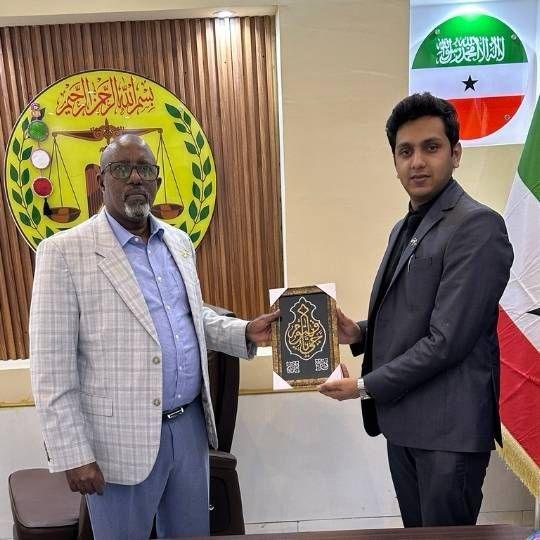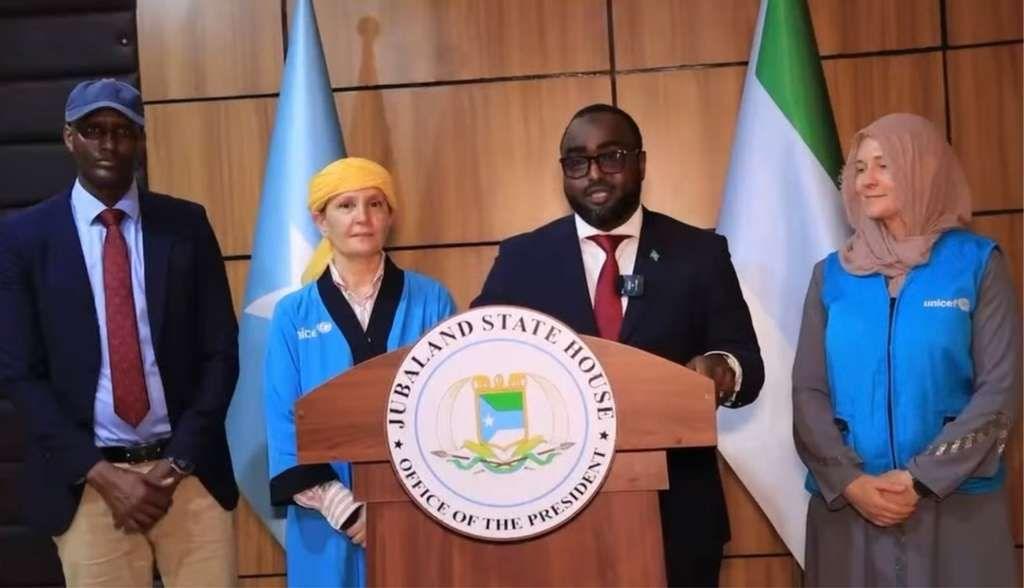By Nyo Aye (Myanmar)
The crisis in Myanmar, ignited by the military coup in February 2021, has drawn significant international attention. Human rights violations and the suppression of democratic movements by the Tatmadaw have triggered responses from various international bodies, including sanctions and legal pressures. An exploration of these responses unveils both their potential impact and inherent limitations in addressing the ongoing turmoil.
International sanctions imposed by entities such as the United Nations (UN) and the European Union (EU) have been the cornerstone of the global reaction to Myanmar’s military rule. These sanctions have targeted senior military officials and military-owned enterprises, aiming to curtail the junta’s financial capabilities and signal international condemnation. Countries like the United States, Canada, and the United Kingdom have spearheaded the effort by freezing assets, imposing travel bans, and targeting military-owned conglomerates, namely Myanma Economic Holdings Limited (MEHL) and Myanmar Economic Corporation (MEC).
Sanctions, in theory, serve to apply economic and political pressure on the regime. By restricting financial resources and business operations, these measures are designed to weaken the junta’s grip on power. The EU’s travel bans and asset freezes against military leaders, along with the U.S. Treasury’s targeting of key military enterprises, exemplify these efforts. These sanctions aim not only to hinder financial influx but also to delegitimize the junta on the global stage.
Nonetheless, the effectiveness of sanctions remains contentious. Historical precedents indicate that sanctions alone rarely compel authoritarian regimes to relinquish power. Myanmar’s experience is a case in point. During the decades of military rule preceding its brief democratic transition (2011-2020), the country was under numerous sanctions.
Myanmar’s economic structure, heavily reliant on natural resources such as jade, timber, and natural gas, provides the military with substantial revenue that sanctions have yet to fully disrupt. Additionally, cross-border trade, particularly with China and Thailand, remains robust, undermining the potential impact of international sanctions.
On the legal front, holding the Myanmar military accountable faces significant challenges. The UN Security Council, a pivotal entity for maintaining global peace, is often stymied by the veto power exercised by its permanent members. Russia and China, with vested interests in Myanmar, have historically blocked stronger measures, presenting a significant impasse for comprehensive international legal action.
Despite these obstacles, alternative legal avenues do exist. The International Criminal Court (ICC) and the International Court of Justice (ICJ) represent potential platforms for legal redress.
The ICC has undertaken a preliminary examination into the forced deportation of Rohingya Muslims to Bangladesh, with the possibility of extending the investigation to include broader human rights abuses. Additionally, The Gambia, supported by the Organization of Islamic Cooperation, has initiated proceedings at the ICJ, alleging Myanmar’s violation of the Genocide Convention.
While these legal processes are vital for long-term justice, they are inherently slow and complex. For the millions of Myanmar citizens facing daily suppression and violence, immediate support is crucial. Thus, the international community must devise multifaceted strategies beyond conventional sanctions and legal measures.
One viable approach could entail targeted sanctions aimed specifically at Myanmar’s critical revenue generators, such as the oil and gas sector. Coupled with coordinated international efforts, these measures could significantly disrupt the junta’s financial underpinnings. Additionally, establishing humanitarian corridors and bolstering refugee assistance would address immediate needs and alleviate human suffering.
Another crucial element is the unwavering support for the National Unity Government (NUG), the interim government formed by ousted lawmakers and ethnic representatives. International recognition and support for the NUG can serve to delegitimize the military junta and offer a credible alternative governance structure.
In conclusion, while sanctions and legal pressures are necessary, they should be components of a broader, cohesive international strategy. This strategy must strive to undermine the junta’s economic base, ensure legal accountability, and provide immediate humanitarian aid. Above all, it must affirm the international community’s solidarity with the people of Myanmar in their struggle for democracy and justice. The international community bears a moral responsibility to act decisively, demonstrating that Myanmar’s plight is not forgotten and that concerted, consistent action will continue until genuine change is achieved.





